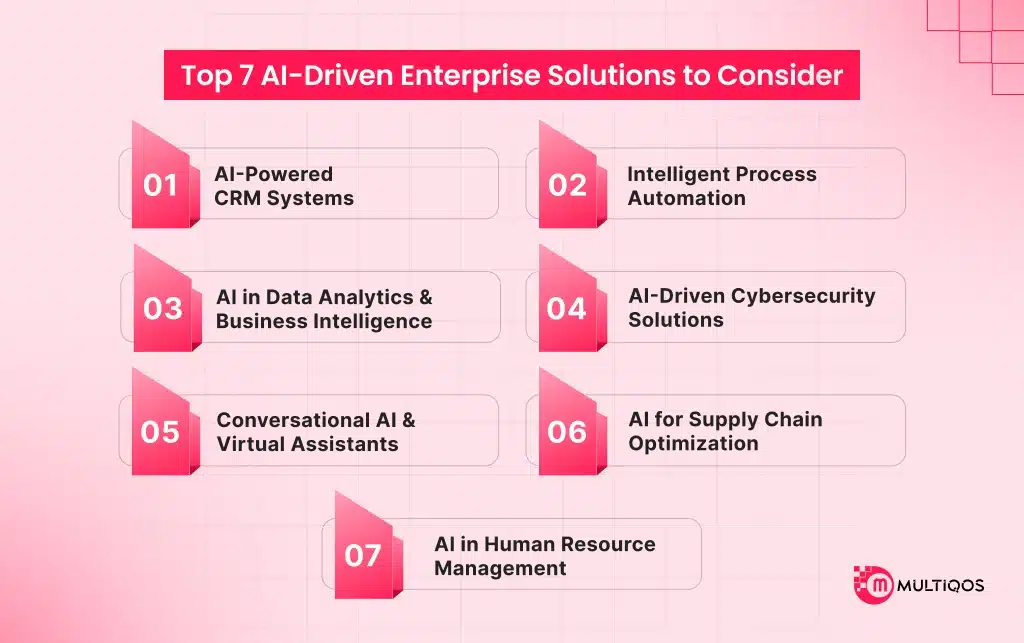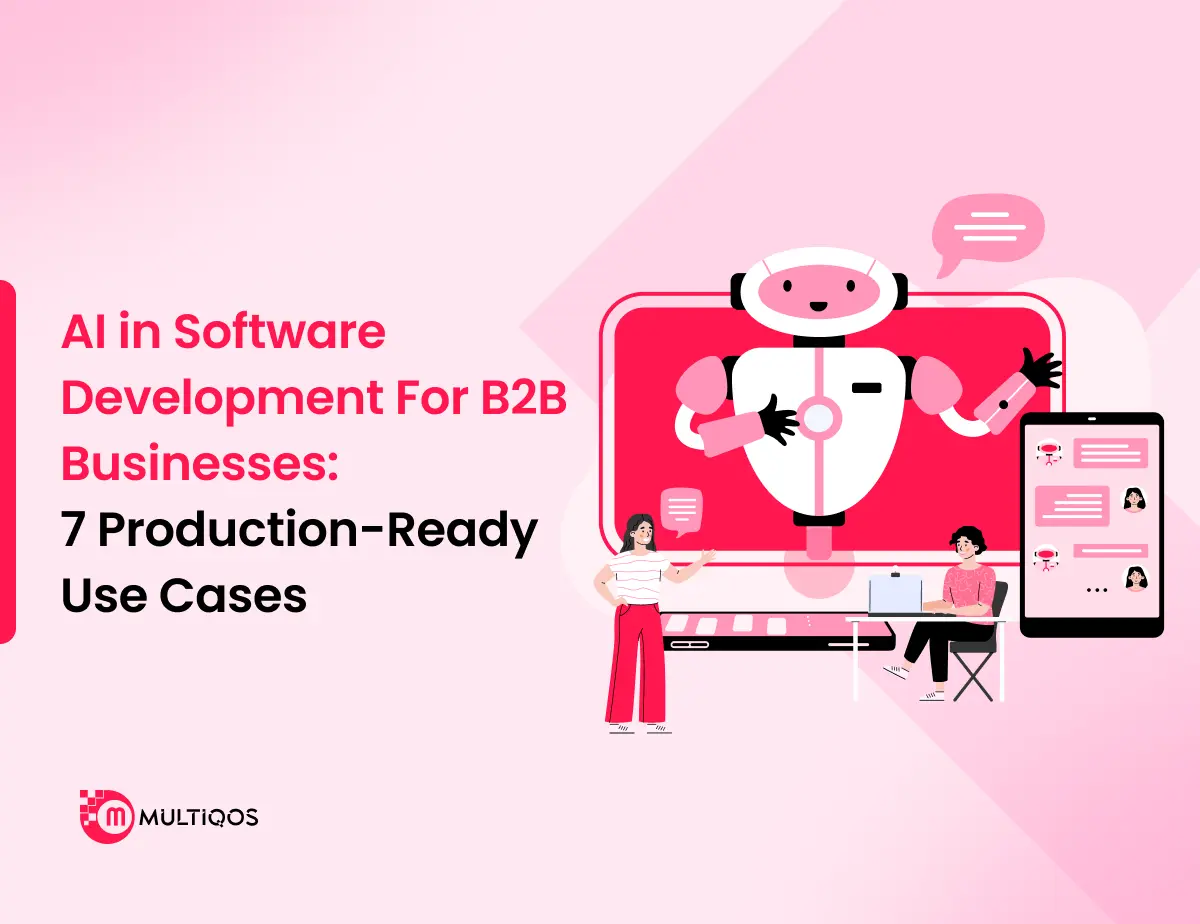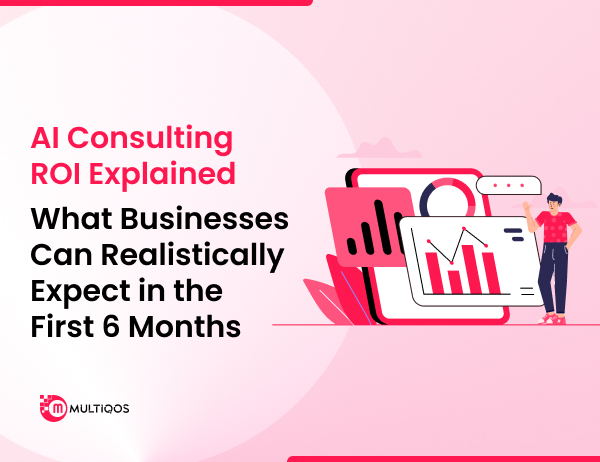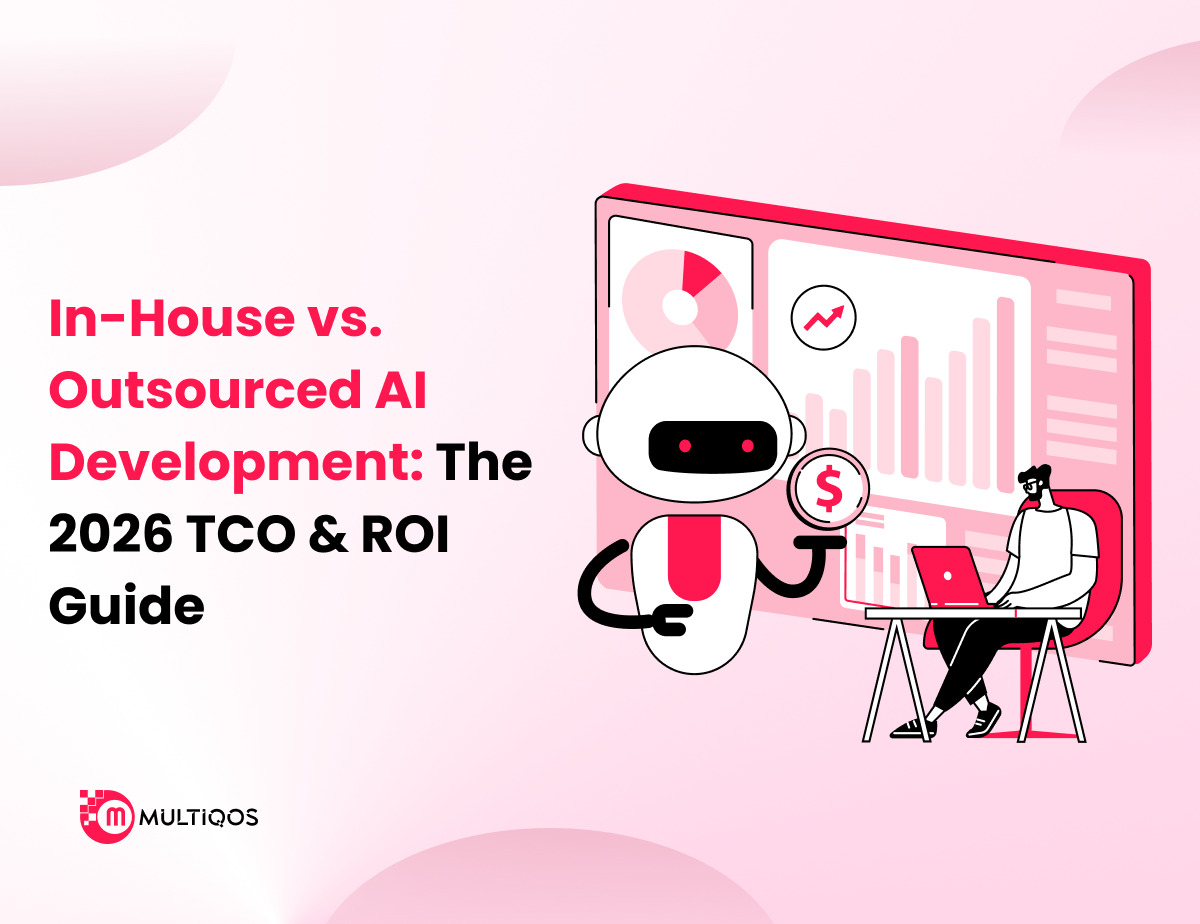Top AI-Driven Enterprise Solutions for Modern Businesses
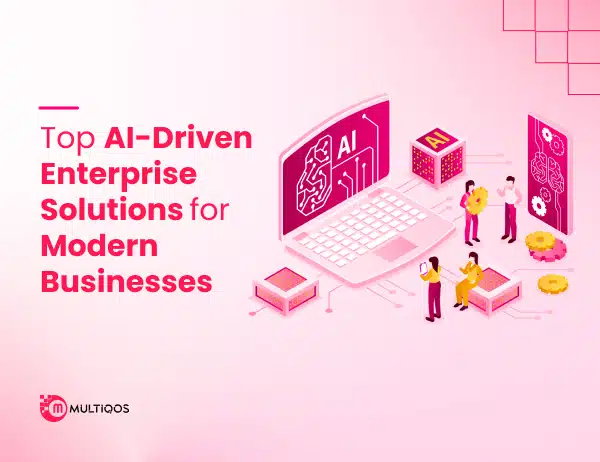
Summary:
Businesses must leverage intelligent technologies to stay competitive, agile, and customer-centric. This blog explores the top AI-driven enterprise solutions revolutionizing companies’ operations—boosting efficiency, enhancing decision-making, and driving innovation. From advanced analytics platforms to AI-powered automation and customer experience tools, discover the key solutions modern enterprises adopt to thrive in 2025 and beyond.
Introduction
As with any new technology, it brings both opportunities and challenges. In business, there is now a great focus on process optimization, transformation, and innovation of customer experience. To cope with these issues, firms implement AI-driven enterprise solutions that optimize business intelligence, automate technologically advanced workflows, and provide a competitive advantage. Every business now uses AI, be it for workflow automation, driven document generation, chatbots, boosted productivity, and revenue generation. This blog highlights the emerging AI applications redefining success for modern businesses.
What are AI-Driven Enterprise Solutions?
AI-driven enterprise solutions restructure automated systems and platforms to assist businesses at a given level in workflow automation, operational efficiency, and decision-making. This revolves around machine learning, natural language processing, and predictive analytics that evaluate enormous datasets and use pattern recognition to extract pertinent data.
Such systems are global in reach and cover every area of the business for better and quicker decision-making. Some more examples are AI-powered CRM systems that automatically enhance relational management and provide predictive aids to marketers’ analysis algorithms, intended to better serve the shifts encountered within the market.
Unlike traditional software, AI-driven enterprise solutions learn from novel data and new interactions, allowing for manual work reduction and proactive, swift problem resolution. Solutions like optimizing supply chain efficacy, automating human resource functions, and developing chatbot technologies for customer service AI give enterprises unmatched competitive advantages and unparalleled business confidence, transforming modern business.
Top 7 AI-Driven Enterprise Solutions to Consider
As AI continues modifying how companies function, multiple intelligent applications have cropped up to assist these firms in automating processes, improving decision-making, and amplifying their performance. Provided below are some of the top AI-driven enterprise solutions that modern businesses need to focus on adopting as part of their tech infrastructure:
1. AI-Powered CRM Systems
Salesforce Einstein and Zoho CRM Plus, for instance, are examples of AI-driven CRM systems that allow businesses to provide tailored customer experiences. These systems assist sales and support staff by analyzing previous interactions, anticipating customer actions, and offering recommendations for optimal next steps. Such AI-powered CRMs improve customers’ business interactions and relationships by reducing the amount of manual data entry required.
2. Intelligent Process Automation
IPA integrates traditional RPA with modern AI-based components such as machine learning and computer vision. Businesses like UiPath and Automation Anywhere have created technologies capable of automating complex In-house organizational functions, ranging from finance to HR. With these automations, accuracy, efficiency, and scalability increase tremendously. Such tools are very effective for large companies that perform a lot of mindless repetitive work.
3. AI in Data Analytics & Business Intelligence
Through features like Microsoft Power BI or IBM Watson, business operators can integrate AI into their systems and obtain insights through data analytics tools. Such services provide additional benefits, including, but not limited to, the automation of dashboards and advanced forms of predictive analytics, identification of opportunities, including forecasting and querying information in ordinary conversational language. Analytics done in real time enables companies to respond to such changes in the market and new customer demands as they emerge.
4. AI-Driven Cybersecurity Solutions
Due to the escalating risks to data security, business enterprises are increasingly adopting AI-based platforms such as Darktrace and CrowdStrike. These systems are integrated with AI algorithms capable of autonomously scanning computer systems for threats or deviations, eliminating them with unparalleled speed, often outpacing human intervention. Unlike traditional tools, AI’s continuous learning from network activity allows businesses to defend against more advanced cyberattacks.
5. Conversational AI & Virtual Assistants
Chatbots and virtual assistants such as Google Dialogflow, Drift, and Ada are changing the landscape of customer care as well as internal help desks. These technologies are capable of great feats. They can answer questions round-the-clock and serve up instant replies. Additionally, complicated issues can be brought to a human agent after initial handling. For business customers, conversational AI positively impacts customer satisfaction while slashing costs and time spent on responses.
6. AI for Supply Chain Optimization
The integration of AI is improving monitoring and forecasting within the supply chain’s processes, as well as optimizing inventory control. ClearMetal and Llamasoft, for instance, apply machine learning to improve logistics and deliver waste management systems to their clients promptly. Businesses dealing with complicated supply networks receive transparency, flexibility, and predictability thanks to AI.
7. AI in Human Resource Management
Technological advances from artificial intelligence are permeating every functional area of human resources, including engagement analytics and even resume screening. HireVue and Pymetrics have implemented behavioral employment screening, which helps reduce biases at selection and post-employment fit checks. Also, AI can be leveraged to track employee performance and retention rates, assisting the HR department in strategizing with greater precision concerning workforce planning.
How to Choose the Right AI Solutions for Your Business?
When adopting AI tools for your firm should consider more than just relevancy; it requires accounting for your organization’s objectives, problems, and technology infrastructure. Defining the exact problems you want to solve is the first step. Is your focus on enhancing customer support, automating tasks, improving the supply chain, or obtaining better analysis of data? Identifying the requirements of your business will enable you to focus on relevant AI technologies.
Afterwards, analyze the scalability and compatibility of the AI tools with your pre-existing systems. Pay attention to the integration processes, required data, system design, and vendor services offered. If you’re dealing with sensitive information, security and compliance issues will matter just as much. Often, the most efficient approach is to hire AI developers who can create custom solutions for your workflows. Best-in-class proprietary systems or bespoke builds both enable the organization to achieve predefined objectives and goals, supported by an effective long-term strategic innovation framework.
Wrapping Up
Getting ahead in today’s ultra-competitive market requires businesses to undergo digital transformations with the right AI technologies, as automation has become a necessity rather than an option. AI has proven to assist companies in all sectors- from streamlining workflows, boosting customer relations, interval logic-based decision making, and others, AI is redefining how business is done, making enterprise solutions smarter and more efficient. It is crucial to form partnerships with the right experts who provide custom-fit services for businesses. Thus, if you are looking to create pioneering solutions, you certainly need investment in professional AI development services to achieve your preset business goals and objectives.
Frequently Asked Questions
An AI-driven enterprise solution incorporates artificial intelligence technology developments, intending to automate business activities, conduct data analysis, and facilitate decisions. Starting from CRMs and chatbots to forecast analytics and advanced process automation, they come in diverse forms. Their purpose is to advance productivity for the firms, minimize manual mistakes, and develop better workflows throughout the organization.
AI-integrated enterprise solutions simplify business operations, save costs, and improve customer relations. It also automates repetitive tasks, executes activities in real time based on data algorithms, and performs data-based trend analysis. For example, AI can customize campaigns, predict the needs of stock items, or even perform basic customer assistance tasks, which frees up marketers to focus on higher-level issues. Ultimately, they multiply productivity and their scope.
AI-driven enterprise solutions augment effectiveness across various sectors such as finance, healthcare, manufacturing, retail, and logistics. Take AI’s role in finance: it is clear in fraud detection, risk assessment, and other diagnostic services, as well as in managing patients. In the context of retail, AI helps marketers tailor their interactions with customers, while predictive analytics allows logistics firms to optimize routes and manage inventory more effectively.
Establish a process starting from your business challenges and goals, such as automating a process, streamlining customer navigation, or performing a comprehensive examination of raw data. Consider the other options as well regarding the scalability of the AI tool, ease of integration, vendor support, and others. In addition, assess how the answer addresses your stitching technology systems and strategic vision, as the architecture of your business shapes the choices you make. Working with specialized professionals and employing AI development services enables the design of the optimal solution.
The majority of AI innovations now come with user-friendly interfaces and cloud services, making setup relatively simple. For more complex needs, firms usually partner with AI development consultants to professionally strategize and build customized solutions. These partnerships ensure smooth implementation and spare in-house teams from excessive workload.
Get In Touch


